
Shauna Shapiro, PhD, is a bestselling author, clinical psychologist, and internationally recognized expert in mindfulness and self-compassion. She is a professor at Santa Clara University and has published over 150 papers and three critically acclaimed books, translated into 16 languages. Dr. Shapiro has presented her research to the king of Thailand, the Danish government, Bhutan’s Gross National Happiness Summit, and the World Council for Psychotherapy, as well as to Fortune 100 companies including Google, Cisco Systems, and LinkedIn. Her work has been featured in the Wall Street Journal, Forbes, Oprah, NPR, and American Psychologist. Dr. Shapiro is a summa cum laude graduate of Duke University and a Fellow of the Mind & Life Institute, cofounded by the Dalai Lama. Her TEDx Talk, “The Power of Mindfulness,” has been viewed over 3 million times.
Author photo © April Bennett
Dear Sounds True friends,
I believe self-love is a superpower.
When we treat ourselves with kindness, it turns on the learning centers of the brain and gives us the resources to face challenges and learn from our mistakes. Transformation requires a compassionate mindset, not shame.
And yet, people often worry that self-love will make them lazy, self-indulgent, or self-absorbed. Science shows just the opposite: people with greater self-love are more compassionate toward others, more successful and productive, and more resilient to stress.
The best news of all: self-love can be learned. We can rewire the structure of our brain and strengthen the neural circuitry of love toward ourselves and others. Each time we practice self-love, we grow this pathway.
My new children’s book, Good Morning, I Love You, Violet!, offers a road map for strengthening your child’s brain circuitry of deep calm, contentment, and self-love.

It is built on principles of psychology and neuroscience and offers a simple yet powerful practice.

As a mother, when asked what I believe is the most important thing we can teach our children, I always answer “self-love.” Learning to be on our own team and to treat ourselves with kindness is life-changing. There is no greater gift we can give our children. There is no greater gift we can give ourselves.

May this book plant seeds of kindness that ripple out into the world.

Shauna Shapiro, PhD
P.S. I invite you to download a free coloring sheet from the book, created by illustrator Susi Schaefer, to enjoy with the children in your life.
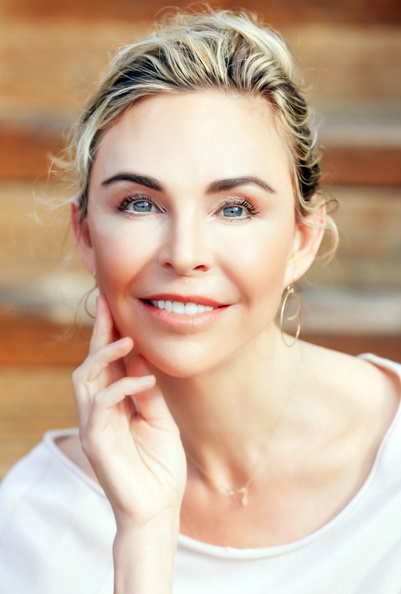
Shauna Shapiro is a mother, bestselling author, professor, clinical psychologist, and internationally recognized expert in mindfulness and self-compassion. She lives in Mill Valley, California. Learn more at drshaunashapiro.com.
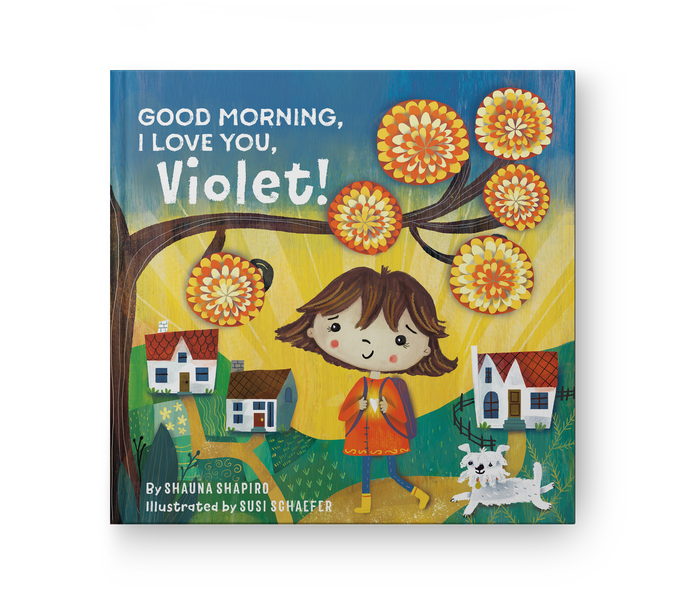
Learn More
Amazon | Barnes & Noble | Bookshop | Sounds True
Shauna Shapiro, PhD, is a teacher, public speaker, and author whose published works include The Art and Science of Mindfulness and Mindful Discipline. With Sounds True, she has published Good Morning, I Love You: Mindfulness and Self-Compassion Practices to Rewire Your Brain for Calm, Clarity, and Joy. In this episode of Insights at the Edge, Tami Simon speaks with Shauna about the neurology of self-image and why conscious acts of self-compassion greatly enhance our well-being. Shauna comments on practicing mindfulness with warmth and open affection, as well as how this gradually cultivates empathy. Tami and Shauna also talk about “trusting the good heart” and the possibility of changing our baseline levels of happiness. Finally, they discuss why changing ingrained habits is so difficult and the subtle power of the daily self-affirmation, “Good morning. I love you.”(55 minutes)
Have you ever been ice-skating before? It sounds like a fun winter activity (especially if you enjoy the cold, like I do), but it can be frustrating and even downright scary if you’re new to it.
Picture this: I took my nephew ice-skating for the first time, full of excitement to see him experience some joy. At twelve years of age, he was already taller than me and had size thirteen feet thanks to his six-foot-eight-inch-tall dad (my brother). The biggest rental skates they had came with worn-out laces rather than the secure plastic bindings all of the other skates had. I could see that they were a little loose around the ankle, but we tied them as best we could and hit the ice.
If you’ve ever seen a newborn deer figuring out how to walk for the first time, you can picture my nephew’s first time on ice skates. His ankles kept knocking in, and he was reaching to hold onto anything for dear life as he wobbled around the perimeter of the rink. It was difficult to watch, not because it was embarrassing, but because I know how hard he is on himself when he’s not immediately good at new things. I wanted to see him having fun, and instead I saw him frustrated and discouraged as all he could do was attempt to remain vertical.
I figured it couldn’t get worse, so I suggested that we trade in his skates for a smaller pair with the more secure plastic buckles to see if that made any difference. He went along with it, probably just to humor me, and we stuffed his feet into some size twelves and made sure his ankle support was good as could be. When I tell you it was a night and day difference, I’m not exaggerating. Suddenly he was speeding around the ice like a pro, lapping past me and his sisters with the biggest smile on his face. He circled the rink over and over again; as his confidence grew, so did his joy, and he even began to try tricks and spins. All he had needed was one little adjustment to his foundation, and he suddenly felt safe enough to have fun.
Here’s the thing: most of us go around in our lives on rickety old skates with worn-out laces. When your only focus is doing your best to remain upright, there’s not much room for joy or play. The big shame in that is that play often is the medicine we most need.
In my experience, the crux of inner child work is reconnecting to the part of you who knows how to play. Sometimes you may first need to make some adjustments that allow you to feel safe enough to play, like practicing nervous system regulation and self-soothing. Once you’ve done that, though, your goal is to invite in as much play as possible. And not adult versions of play that are really just a facade for dissociative behaviors, but real, childlike wonder.
Invite in curiosity and awe and silliness and uninhibited joy. Start by returning to the things you loved to do when you were a kid. Maybe that means setting aside time each weekend for arts and crafts. Maybe it means participating in physical activities that feel like play, such as dancing, swimming, sports, or jumping on a trampoline. Maybe it just means giving yourself permission to skip while you walk or sing while you drive.
The point is, when you bring those younger versions of you into your present-day life, you not only have more fun, but you also experience more healing. We were never meant to lose touch with our inner child. Yes, it’s important to learn how to be self-sufficient and responsible, and aging is inevitable. But it’s equally important not to take yourself too seriously along the way.
Try This
Your homework is to set regular playdates with your inner child. Do things that sound like fun, even if they don’t make logical sense. Allow yourself to be as carefree and openhearted as possible, without judging the things that bring you joy. The sillier it feels, the more on point you likely are. Here are some examples to consider:
Play is an important part of our overall well-being. Consistently making time to get into that creative flow state will help you deepen your relationship with your inner child . . . and your adult self. I suggest checking in at least once per month, if not weekly, to see where you can fit more play into your life.
Excerpted from Choose Your Self: How to Embrace Being Single, Heal Core Wounds, and Build a Life You Love.
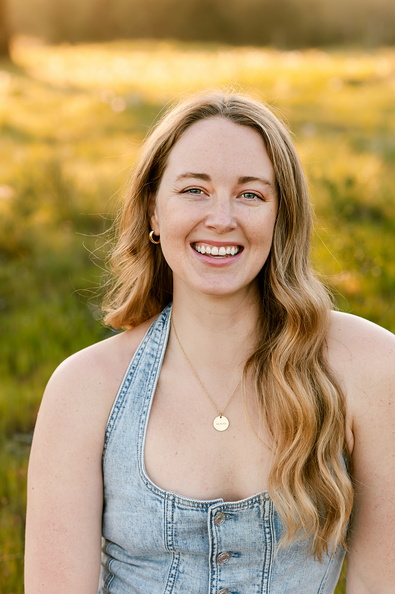
Megan Sherer is a certified somatic therapist and licensed hypnotherapist whose mission is to help others build healthy and fulfilling relationships, starting with self. She hosts the Well, Then podcast and founded the women’s therapy app The Self Care Space. For more, visit megansherer.com.
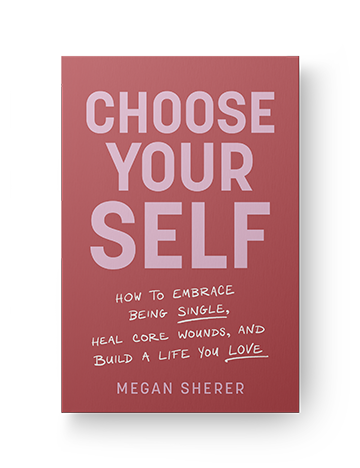
Learn More
Amazon | Barnes & Noble | Bookshop | Sounds True
An Excerpt From To Tend And To Hold: Honoring Our Bodies, Our Needs, and Our Grief Through Pregnancy and Infant Loss
For as long as there has been life, there has been death. For as long as we have birthed life, we have also birthed death. What you feel has been felt since time immemorial, and it has been felt by many, though womb loss is still not widely known or acknowledged. Consider that even in the most optimal conditions, there is only a 30 to 40 percent chance that a clinically recognized pregnancy will occur in a given menstrual cycle, and only about 30 percent of conceived pregnancies progress to live birth.1 Globally, approximately one in four pregnancies end in miscarriage and 2.6 million pregnancies end in stillbirth.2 In 2022, 2.3 million newborns died in the first month of life,3 and approximately 73 million induced abortions occur every year.4 Womb loss in and after pregnancy is, in fact, a common and regular occurrence, though many of us may struggle with feelings of inadequacy and shame as if such loss is atypical and we are deserving of blame. The prevailing stigma surrounding womb loss makes enduring it all the more challenging as we may feel reluctant to reach out for support and hold on to harmful ideas about our worth. You are not alone, nor are you any less precious and deserving of support. You are not alone as the anguish of womb loss has been felt, is being felt at this very moment, and will continue to be felt the world over.
Before we go any further, let us reconnect with our breath. It can be hard to breathe if you’ve recently learned about your womb loss or impending loss and feel pressure to make decisions right away. Or if you have learned of the potential for a loss and have to endure a waiting period before you know for certain. It can be hard to breathe even as you process a loss long since passed. The following practice is an invitation to make the resilient choice to slow down and allow yourself a moment to breathe. So that you can feel grounded. So that you can have the capacity to be present to your grief. So that you can tend to your needs.
GROUNDING BREATHING PRACTICE
The Invitation
When you are ready, take three deep breaths at your own pace and in your own way. You might inhale and exhale through the nose or inhale through the nose and exhale audibly through the mouth. You might close your eyes or soften your gaze as you do so, allowing your awareness to gently follow each breath, letting everything else fade to the background. You might even think the following words as you breathe, allowing them to help you feel grounded in this moment.
Inhale. Exhale. One.
Inhale. Exhale. Two.
Inhale. Exhale. Two.
Your body may want to continue breathing this way, or it may feel like this was enough. Honor what feels right for you.
Sometimes breathing is the most we can bring ourselves to do, the best we can do, when our whole being is overcome. Deciding what comes next may feel like too much to ask of ourselves. If so, breathe, and trust that it is enough for this moment.
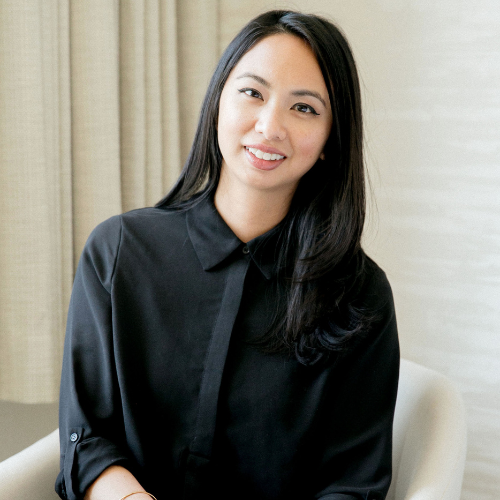
Eileen Santos Rosete, MSMFT, PCD(DONA), CYT 200, holds a master of science in marriage and family therapy from Northwestern University and is certified as a DONA International postpartum doula, trauma-informed yoga teacher, and grief educator. Her brand, Our Sacred Women®, is known for its elevated offerings that help women feel seen, held, and honored. She is especially passionate about supporting all who give birth and are postpartum both after live births and after loss. To learn more, visit eileensantosrosete.com.
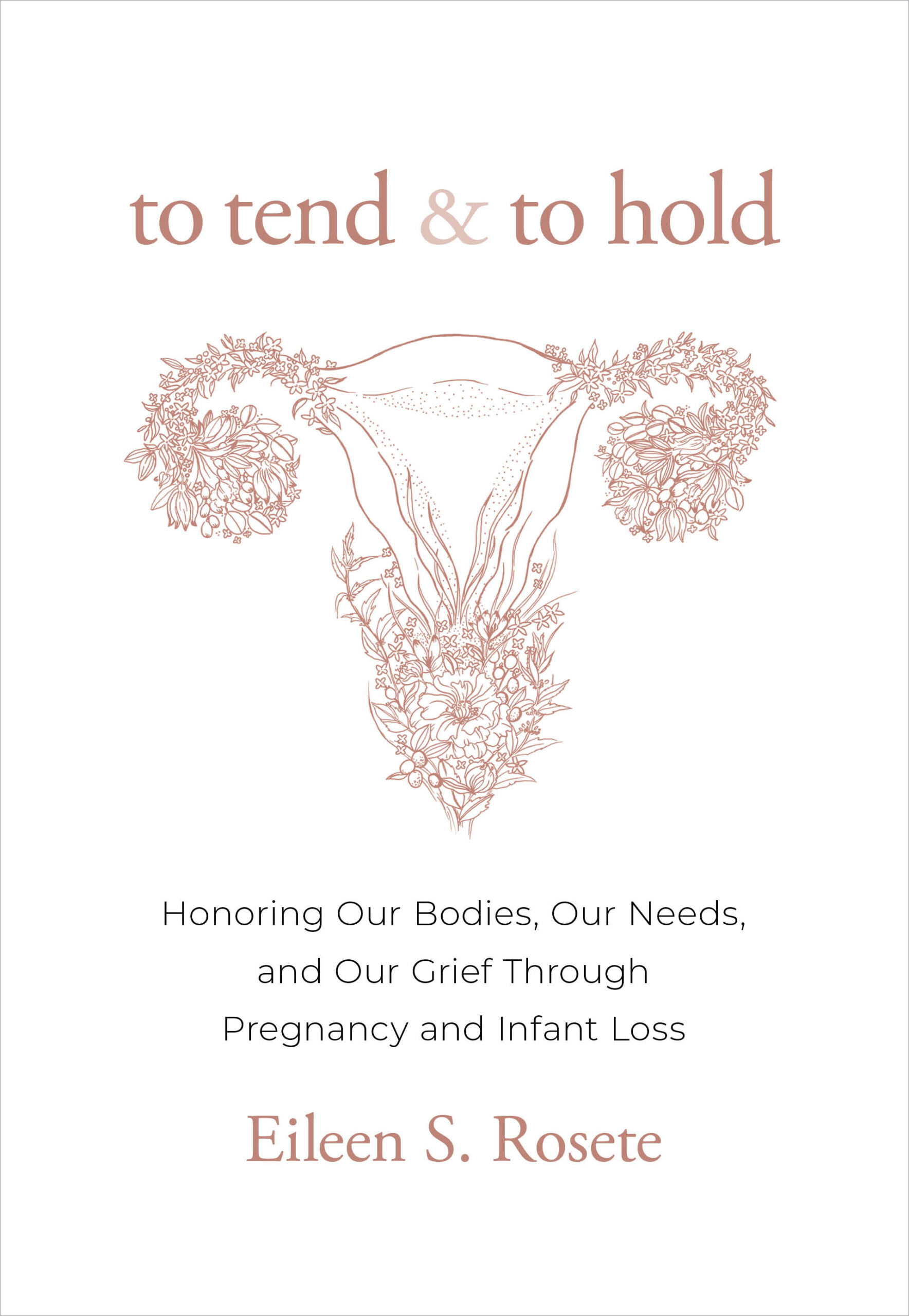
Learn More
Amazon | Barnes & Noble | Bookshop | Sounds True
Dear Sounds True friends,
Have you ever been in the spotlight?
The excitement, the lights, and…
…ALL EYES ON YOU (Gulp!)
While some athletes, speakers, and performers bask in the glow, it can be scary for most others. I happen to be one of these “others,” complete with sweaty palms, a racing heart, and a blank mind!
These big feelings inspired me to write All Eyes on You, a story that helps kids overcome performance anxiety when they find themselves the center of attention, such as on stage, in a classroom, or on the baseball field.


I share tried-and-true tips for dealing with these moments (such as breathing exercises and counting to slow down your racing heart) while also having fun (like picturing the audience in their underwear) to help boost confidence and be present in the moment.
It also makes an excellent tool for helping others calm the butterfly stampede in their stomachs and feel a sense of camaraderie that they are not alone in their stage fright.
So when the stage calls (or the front of the classroom or home plate), take a deep breath and give these tips a try. You just might surprise yourself—and those around you!
Break a leg,
Susi Schaefer
Author & Illustrator
P.S. I invite you to download free coloring sheets from the book to also enjoy with the little ones in your life!
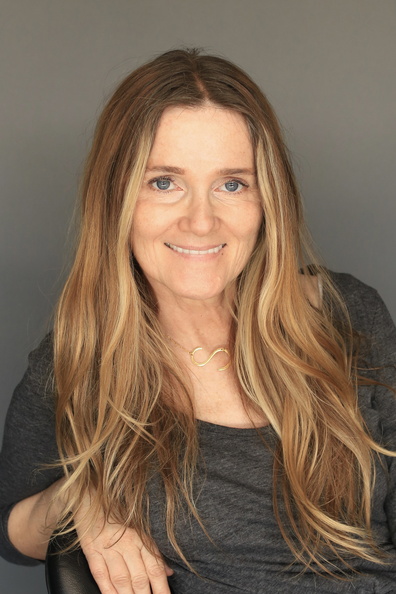
Susi Schaefer trained as a classical glass painter in Austria before moving to the United States and studying graphic design. She is the illustrator of Zoo Zen and Good Morning, I Love You, Violet! as well as the author-illustrator of other picture books for children. For more, visit susischaefer.com.
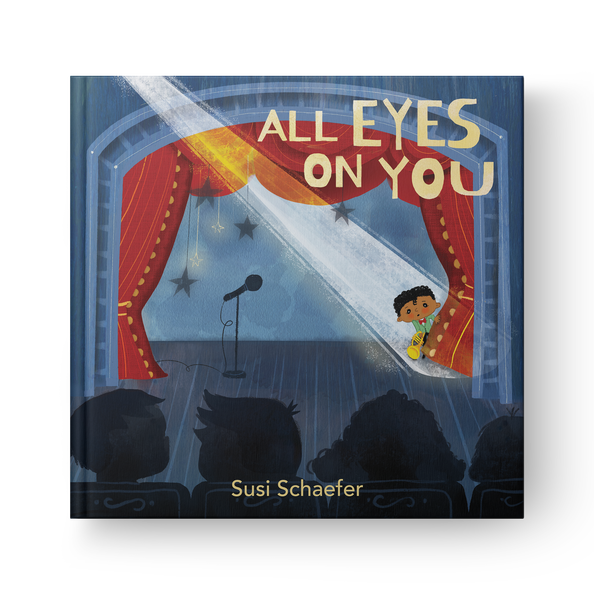
Learn More
Amazon | Barnes & Noble | Bookshop | Sounds True
© 2024 Sounds True. All rights reserved.